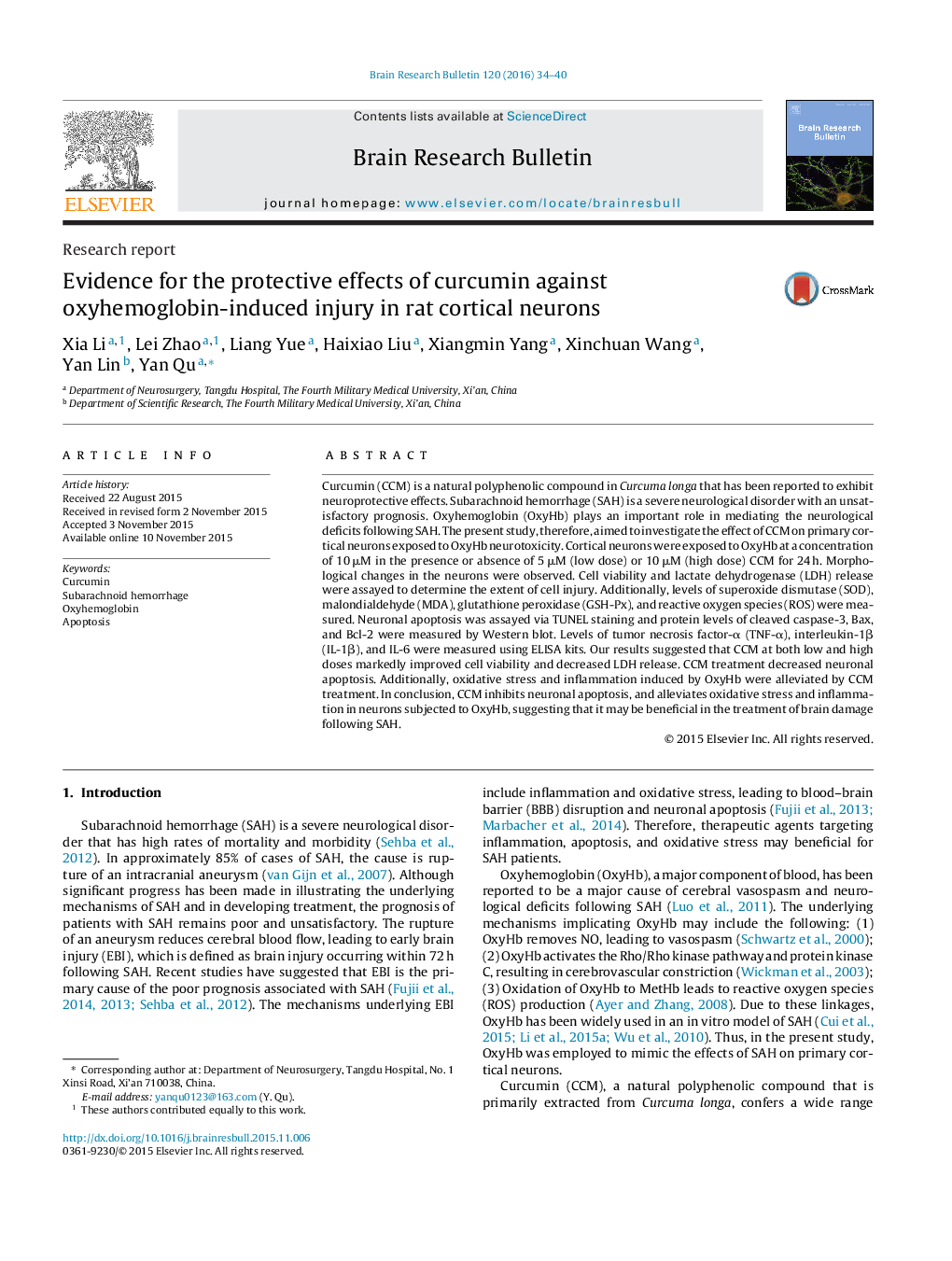| کد مقاله | کد نشریه | سال انتشار | مقاله انگلیسی | نسخه تمام متن |
|---|---|---|---|---|
| 6261635 | 1613236 | 2016 | 7 صفحه PDF | دانلود رایگان |
- Curcumin protects the cortical neurons from oxyhemoglobin neurotoxicity.
- Curcumin attenuates oxidative stress induced by oxyhemoglobin.
- Curcumin reduces apoptosis induced by oxyhemoglobin.
- Curcumin alleviates inflammation triggered by oxyhemoglobin.
- Curcumin has therapeutic potential in the treatment of SAH.
Curcumin (CCM) is a natural polyphenolic compound in Curcuma longa that has been reported to exhibit neuroprotective effects. Subarachnoid hemorrhage (SAH) is a severe neurological disorder with an unsatisfactory prognosis. Oxyhemoglobin (OxyHb) plays an important role in mediating the neurological deficits following SAH. The present study, therefore, aimed to investigate the effect of CCM on primary cortical neurons exposed to OxyHb neurotoxicity. Cortical neurons were exposed to OxyHb at a concentration of 10 μM in the presence or absence of 5 μM (low dose) or 10 μM (high dose) CCM for 24 h. Morphological changes in the neurons were observed. Cell viability and lactate dehydrogenase (LDH) release were assayed to determine the extent of cell injury. Additionally, levels of superoxide dismutase (SOD), malondialdehyde (MDA), glutathione peroxidase (GSH-Px), and reactive oxygen species (ROS) were measured. Neuronal apoptosis was assayed via TUNEL staining and protein levels of cleaved caspase-3, Bax, and Bcl-2 were measured by Western blot. Levels of tumor necrosis factor-α (TNF-α), interleukin-1β (IL-1β), and IL-6 were measured using ELISA kits. Our results suggested that CCM at both low and high doses markedly improved cell viability and decreased LDH release. CCM treatment decreased neuronal apoptosis. Additionally, oxidative stress and inflammation induced by OxyHb were alleviated by CCM treatment. In conclusion, CCM inhibits neuronal apoptosis, and alleviates oxidative stress and inflammation in neurons subjected to OxyHb, suggesting that it may be beneficial in the treatment of brain damage following SAH.
Journal: Brain Research Bulletin - Volume 120, January 2016, Pages 34-40
